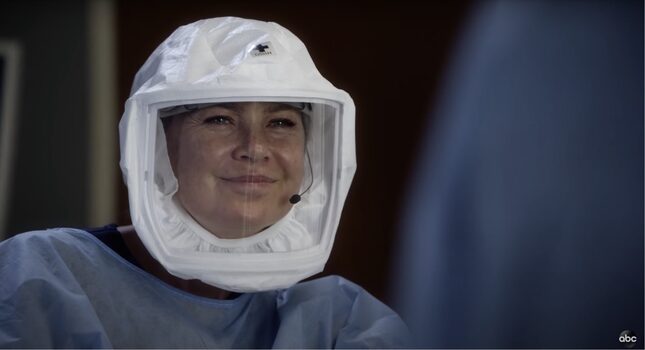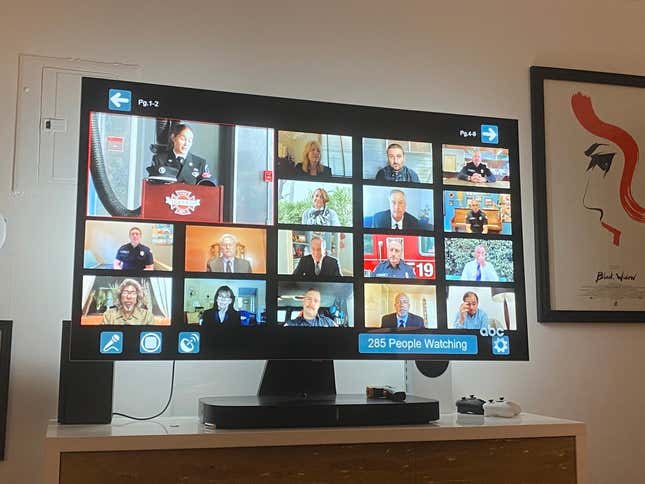

I live alone in New York City, which is really cool when there isn’t an isolating pandemic ravaging the country. But despite the way covid-19 can exacerbate loneliness and has, on occasion, left me when fuck all to do, I have endured. Much like Grey’s Anatomy, which first premiered after the 2005 Super Bowl. Grey’s Anatomy had its 16th season premiere Thursday night and, because it is a medical drama, and because, apparently, the writer’s room insisted it wanted to cover covid-19 despite showrunner Krista Vernoff initially objecting—Grey’s Anatomy did a very special episode about the pandemic that affects us all.
No, sorry. Grey’s Anatomy, and its spin-off Station 19, did a collective three hours of very special episodes. Commercials on Twitter repeatedly told me Grey’s started at 8 p.m. EST, so I settled in for what I thought was an hour of TV, only to realize I was settling in for Station 19‘s premiere, which was then followed by two episodes of Grey’s Anatomy. All were focused on covid-19 and burning through footage shot last season before the shows’ productions were ended in March.
These aren’t the first network shows to deal with the pandemic. This Is Us has been tackling it, and Black-ish had a very special episode where Rainbow (the mom) screamed at Junior (the oldest son) for sneaking his girlfriend into the house while Rainbow was busy saving lives at the hospital. Then Dre (the dad) got upset when he realized his job as an ad exec wasn’t as important to the country surviving the pandemic as his wife’s job as a doctor. We all learned something.
That seemed to be the intent of Grey’s and Station 19, too. Network TV shows tend to start working on scripts months in advance of their season premieres, and these three hours felt like a series of memes ripped straight out of May 2020 instead of November 2020. In the first six minutes of Station 19, viewers witnessed a montage of masked characters delivering groceries to loved ones and waving from afar, private firefighters training inmates to fight wildfires, and two characters having a conversation on how long could covid-19 last, anyways. It was the exact sort of thing I wanted to see from a weekly drama full of familiar characters…three or four months ago. The show seemed eager to explore the new normal, but the rest of us have already passed that new normal by.
So it was less than exciting when we got that same six minutes, essentially on repeat, for three hours. The paramedics found a group of kids stranded on the side of the road, clearly having escaped stay-at-home orders to celebrate their canceled graduation from high school, and then the kids started a wildfire (and cried about missing graduation).
The firefighters hung out in the station and kept talking about their “social bubbles”—which is a concept largely abandoned as a method of dealing with covid and still seeing friends and family.
-

-

-

-

-

-

-

-

-

-

-

-

-

-

-

-

-

-

-

-

-

-

-

-

-

-

-

-

-

-

-

-

-

-

-

-

-

-

-

-









































